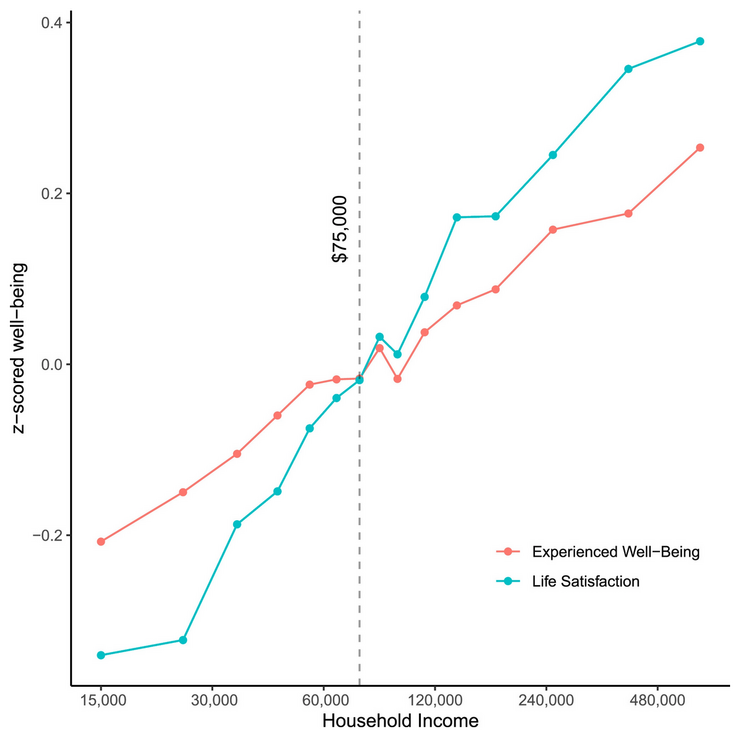Money, AI, and Identity: The Surprising Links Between Income, Technology, and Self-Worth
Delve into the link between income and well-being, and the research that shows it to be true. Explore the concept of AI dinners, where you can have a conversation with anyone, real or fictional. Healthy sense of self should be rooted in...

- Money Matters: The Surprising Link Between Income and Well-Being
- AI Dinners: Have a Conversation with Anyone, Real or Fictional
- Beyond the Job Title: Why a Career Shouldn't Define Your Identity
Thing 1 - Money Matters: The Surprising Link Between Income and Well-Being
More money == better life? Here's a surprise.
Yes. If you define "better life" as higher "life satisfaction" and "experienced well-being". And if you don't, hit a quick reply to let me know what your definition is.
You might've heard that this works until you hit some magic number ($75,000/y) and has little influence after that.
And this is a great excuse to settle for less.
Since you're a high-achiever, like the rest of the 3-in-3 subscribers, here's some research to silence your inner critic and go for more.
Research

They gathered 1.7M experience sampling reports from 33k employed US adults.
To increase your well-being by the same amount, you need to double your income.
There was also no income threshold at which experienced and evaluative well-being diverged; instead, higher incomes were associated with both feeling better moment-to-moment and being more satisfied with life overall.
There might be some level where more money doesn't make any difference to your life. If there is, it's above half a mil a year.
You need to double your income to get the same amount of increase in well-being, so your 3% pay raise won't cut it. Think bigger 😉
(source)
Thing 2 - AI Dinners: Have a Conversation with Anyone, Real or Fictional
If you could have a dinner with anyone, dead or alive, real or fictional... Who would it be?
AI is getting so good that you might get a taste of that dinner tonight.
Here's how

Character.AI lets you create an artificial character based on a series of descriptions. You can also talk to the ones other people made.
- 🤥 Everything Characters say is made up!
- 🤬 Characters may mistakenly be offensive
- 🥳 Characters can be anything.
I've had better conversations with Characters than with some humans. The conversation quality is top-notch.
The platform stability? Not so much (while I was using it).
But it's still in beta.
And 100% free (for now).
You can even use it without creating a profile.
Who are you going to talk to?
Thing 3 - Beyond the Job Title: Why a Career Shouldn't Define Your Identity
"What do you want to be when you grow up?" sends the wrong message about work.
We should teach kids that who you are is more than what job you do. Work is an activity—it doesn't have to define your identity.
A healthy sense of self is rooted in character, not career choice.
- Adam Grant
If AI stopped advancing today, just the last 3 months of progress would give us decades of improvements as we implement them into other aspects of technology and life.
That's no exaggeration. As we speak, I'm chatting with AI versions of Tony Stark, Elon Musk, Psychologist, and Life Coach - and they all feel like real people. Earlier, I had an AI helper read my code and suggest changes based on questions I asked it.
And it's showing no signs of stopping.
With this much disruption around the corner, why would you want to lock anyone you care about into conflicting a job with identity?
Cheers, Zvonimir